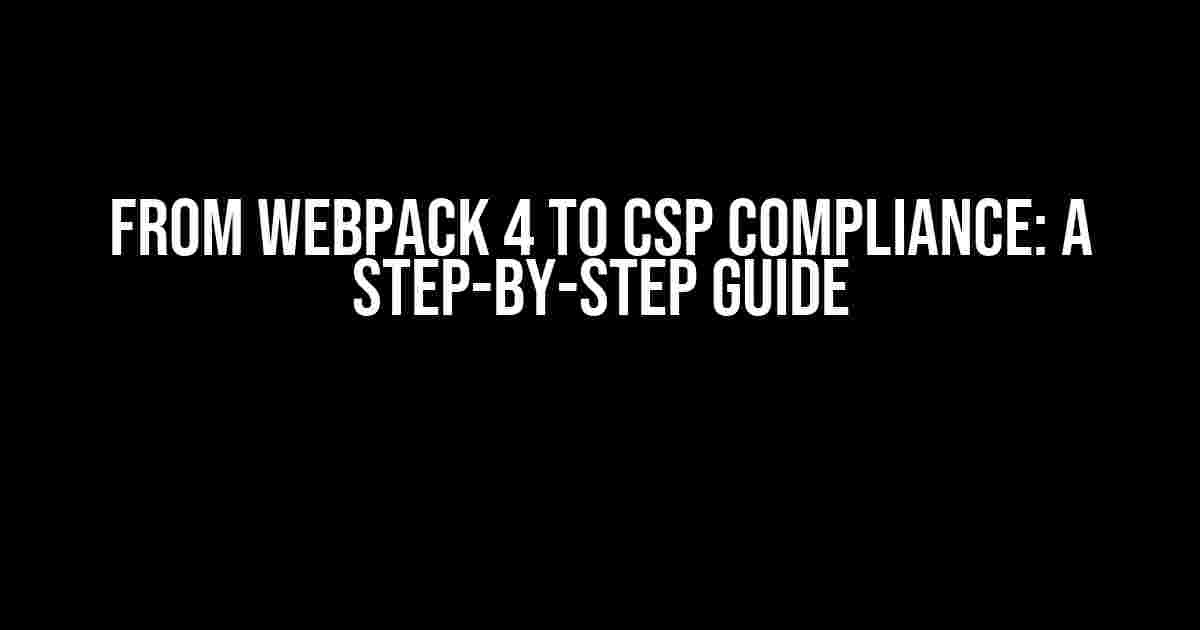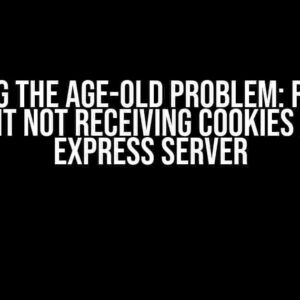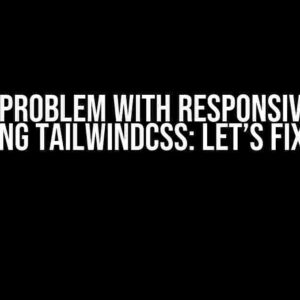If you’re reading this, chances are you’re struggling to migrate from Webpack 4 to a Content Security Policy (CSP) compliant build pipeline without using the dreaded 'unsafe-eval'. Fear not, dear developer, for this article is here to guide you through the process with ease. By the end of this comprehensive guide, you’ll be able to bask in the glory of a CSP-compliant build, free from the shackles of 'unsafe-eval'.
What is Content Security Policy (CSP)?
Before we dive into the nitty-gritty, let’s take a brief look at what CSP is and why it’s essential in today’s web development landscape. CSP is a security feature implemented in web browsers to prevent cross-site scripting (XSS) attacks. It works by defining which sources of content are allowed to be executed within a web page, thereby mitigating the risk of malicious scripts.
The CSP policy is typically set via an HTTP response header, specifying the allowed sources for different types of content, such as scripts, styles, and images. In the context of this article, we’re primarily concerned with script-src, which controls the sources of executable script code.
The Problem with Webpack 4 and ‘unsafe-eval’
Webpack 4, by default, uses 'eval' to execute modules. This poses a problem for CSP compliance, as 'eval' is considered an 'unsafe-eval' source. The 'unsafe-eval' source allows malicious script execution, which is precisely what CSP aims to prevent.
To illustrate the issue, consider the following Webpack 4 configuration:
module.exports = {
// ...
module: {
rules: [
{
test: /\.js$/,
use: 'babel-loader',
exclude: /node_modules/,
},
],
},
};In this example, Webpack 4 uses 'eval' to execute the transformed JavaScript code, violating the CSP policy. To migrate to a CSP-compliant build, we need to find alternative ways to execute modules without relying on 'eval'.
Migrating to a CSP-Compliant Build
To build a CSP-compliant Webpack pipeline, we’ll focus on the following strategies:
async/deferscript tags- Using a CSP-compliant loader
- Inlining critical styles and scripts
- Implementing a nonce-based approach
1. async/defer Script Tags
One approach to CSP compliance is to use async or defer script tags. These attributes allow scripts to be executed asynchronously, without blocking the parsing of the HTML document.
Update your Webpack configuration to use the script-loader:
module.exports = {
// ...
module: {
rules: [
{
test: /\.js$/,
use: 'script-loader!babel-loader',
exclude: /node_modules/,
},
],
},
};This configuration tells Webpack to use the script-loader before the babel-loader. The script-loader wraps the transformed JavaScript code in a script tag with the async attribute, ensuring CSP compliance.
2. CSP-Compliant Loader
Another approach is to use a CSP-compliant loader, such as the nonce-loader. This loader injects a random nonce value into the script tag, which is then verified by the CSP policy.
Install the nonce-loader using npm or yarn:
npm install nonce-loader --save-devUpdate your Webpack configuration to use the nonce-loader:
module.exports = {
// ...
module: {
rules: [
{
test: /\.js$/,
use: 'nonce-loader!babel-loader',
exclude: /node_modules/,
},
],
},
};In this example, the nonce-loader is used before the babel-loader, injecting a random nonce value into the script tag.
3. Inlining Critical Styles and Scripts
script-loader to inline critical styles and scripts.
module.exports = {
// ...
module: {
rules: [
{
test: /\.css$/,
use: 'style-loader!css-loader',
},
{
test: /\.js$/,
use: 'script-loader!babel-loader',
exclude: /node_modules/,
},
],
},
};4. Implementing a Nonce-Based Approach
A nonce-based approach involves generating a random nonce value and injecting it into the script tag. This value is then verified by the CSP policy, ensuring that only authorized scripts are executed.
Create a nonce generator function:
const crypto = require('crypto');
function generateNonce() {
return crypto.randomBytes(16).toString('hex');
}Update your Webpack configuration to use the nonce generator function:
module.exports = {
// ...
module: {
rules: [
{
test: /\.js$/,
use: ({ resourceQuery }) => {
const nonce = generateNonce();
return `script-loader?nonce=${nonce}!babel-loader`;
},
exclude: /node_modules/,
},
],
},
};In this example, the nonce generator function is used to generate a random nonce value, which is then injected into the script tag via the script-loader.
Conclusion
Migrating from Webpack 4 to a CSP-compliant build pipeline without using 'unsafe-eval' requires a combination of strategies, including the use of async/defer script tags, CSP-compliant loaders, inlining critical styles and scripts, and implementing a nonce-based approach.
By following this comprehensive guide, you’ll be well on your way to building a CSP-compliant Webpack pipeline that ensures the security and integrity of your web application.
Additional Resources
For further reading on CSP and Webpack, we recommend the following resources:
Happy building, and remember to stay CSP-compliant!
| Strategy | Description |
|---|---|
async/defer script tags |
Use async or defer script tags to execute scripts asynchronously. |
| CSP-compliant loader | Use a CSP-compliant loader, such as the nonce-loader, to inject a random nonce value into the script tag. |
| Inlining critical styles and scripts | Use Webpack’s built-in style-loader and script-loader to inline critical styles and scripts. |
| Nonce-based approach | Generate a random nonce value and inject it into the script tag, verifying it with the CSP policy. |
Here are 5 questions and answers about how to build from Webpack 4 to without breaking Content-Security-Policy of not using ‘unsafe-eval’:
Frequently Asked Question
Are you tired of dealing with the pesky “unsafe-eval” error in your Content-Security-Policy? Worry no more, we’ve got you covered!
Q: Why do I need to stop using ‘unsafe-eval’ in my Content-Security-Policy?
The ‘unsafe-eval’ directive allows the execution of arbitrary JavaScript code, which poses a significant security risk. By disallowing ‘unsafe-eval’, you protect your users from potential XSS attacks and ensure the integrity of your application.
Q: How do I replace the ‘eval’ function in Webpack 4 to adhere to Content-Security-Policy?
You can use the ‘jsonpFunction’ option in Webpack’s configuration to replace the ‘eval’ function. For example, you can set ‘jsonpFunction: “webpackJsonpCallback”‘ to use a safe JSONP callback function instead.
Q: What about plugins like UglifyJsPlugin that rely on ‘eval’?
You can replace UglifyJsPlugin with alternative plugins like TerserPlugin, which is ‘eval’-free and compatible with Webpack 4. Additionally, you can use the ‘sourceMap’ option to generate source maps without relying on ‘eval’.
Q: How do I ensure that my third-party libraries are compliant with the ‘unsafe-eval’ restriction?
Verify that your third-party libraries are updated to support CSP-compliant builds or use alternative libraries that adhere to the ‘unsafe-eval’ restriction. You can also use the ‘script-loader’ to preload scripts and ensure they are executed in a CSP-compliant manner.
Q: Are there any Webpack 4 configurations that can help me adhere to the ‘unsafe-eval’ restriction?
Yes, you can use the ‘csp’ option in Webpack’s configuration to enable Content-Security-Policy support. Set ‘csp: “script-src ‘self’; object-src ‘self’;”‘ to define a basic policy that restricts the execution of scripts to only those originating from your application.





